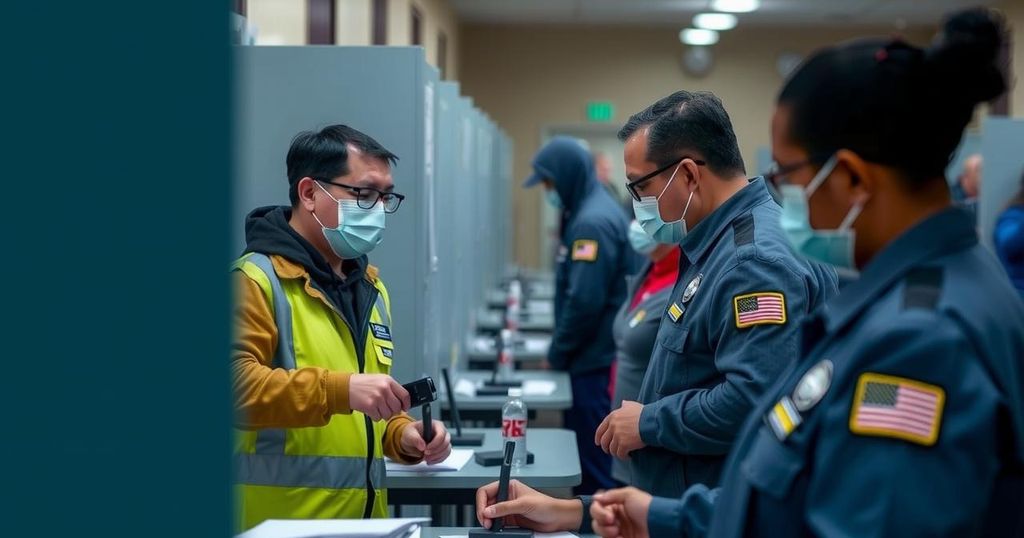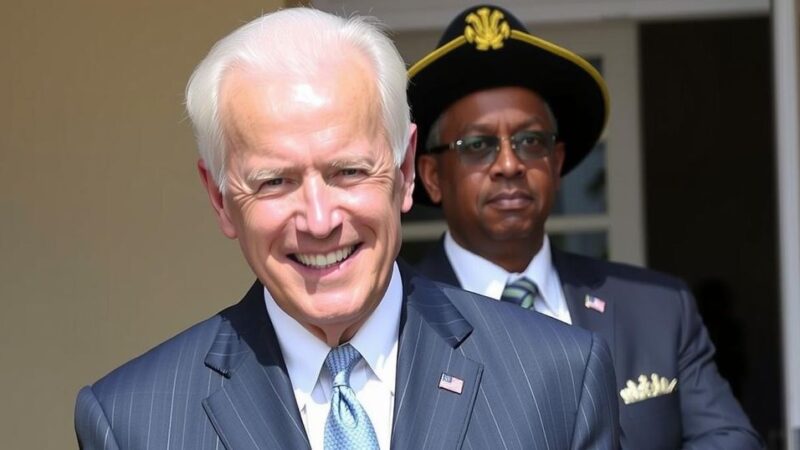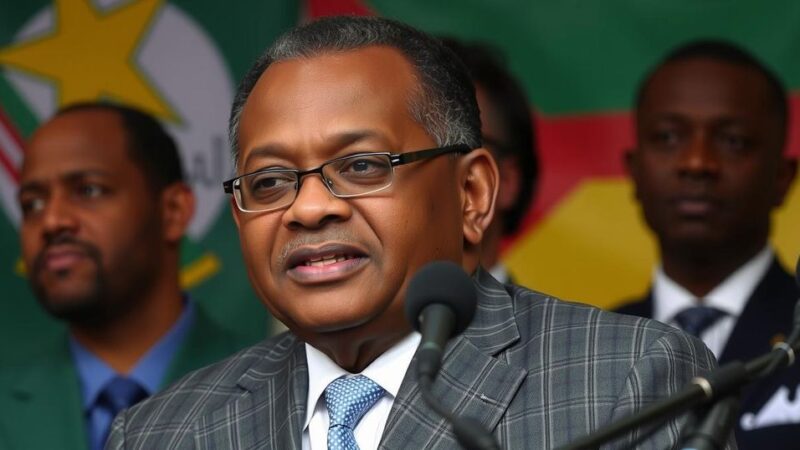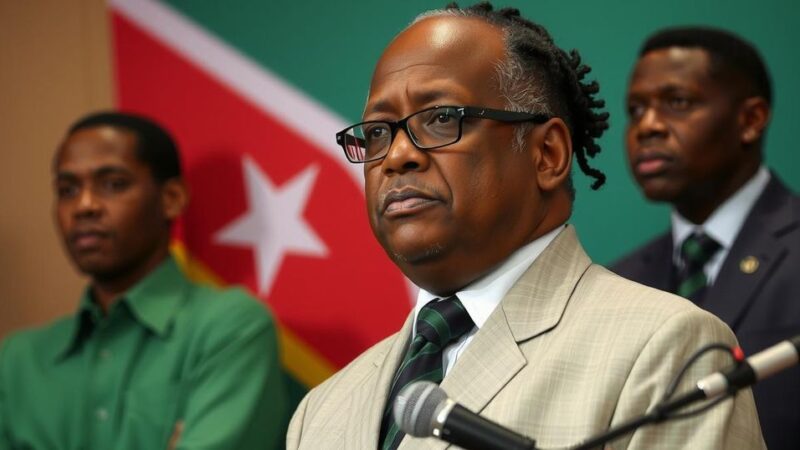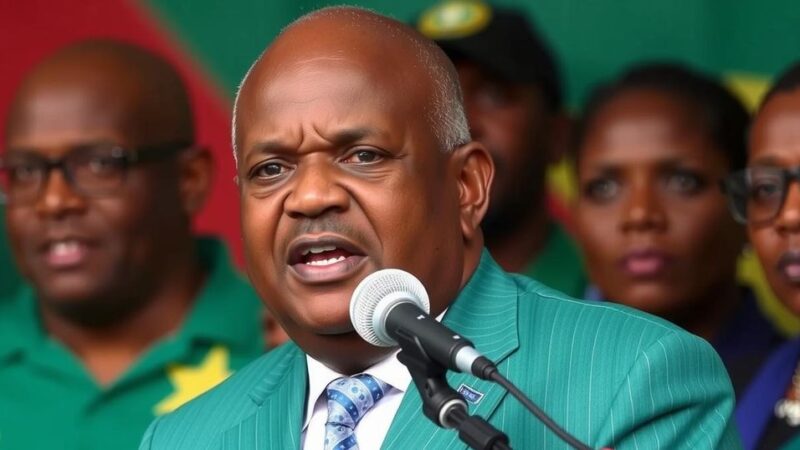Amid rising fears for election worker safety, Arizona’s Maricopa County plans to deploy snipers to guard the tabulation center ahead of the November 5 elections. Extensive security measures include metal detectors, drones for aerial monitoring, and dual security fencing. Nationwide, states are enhancing their security protocols in response to warnings of potential election-related violence, ensuring that measures are in place to protect the democratic process and the individuals involved in it.
As Election Day approaches, significant security measures are being implemented to safeguard election workers in the United States. In Arizona, particularly in Maricopa County—widely regarded as a critical battleground—the deployment of snipers to oversee the tabulation center is a prominent security tactic amid heightened concerns surrounding potential threats directed at those involved in the counting of ballots. This preventive action comes in the wake of the intense political discord witnessed during the last election cycle in 2020, which culminated in the storming of the U.S. Capitol in January 2021. In response to the divisive climate, officials have devised extensive security protocols for the upcoming presidential elections scheduled for November 5. In addition to the strategic placement of snipers atop the tabulation center, Maricopa County will enhance its security infrastructure with metal detectors at every entry point, the employment of drones for aerial surveillance, and an extensive array of security cameras complemented by floodlights. The facility will be further fortified with dual layers of security fencing and designated transportation arrangements for election workers from off-site parking areas. Maricopa County is pivotal to the electoral landscape, having been the focus of unfounded claims of election fraud post-2020 elections, where President Biden narrowly won with a margin of 50.3% over former President Trump’s 48.1%. Despite allegations, investigations revealed only 182 possibly fraudulent votes out of more than 3.4 million cast—far exceeding the margin that secured Biden’s victory. Similar security enhancements are being observed nationwide. In Colorado, election officials are equipping their personnel with bulletproof vests and incorporating bulletproof glass in strategic locations. According to Colorado’s Secretary of State, Jena Griswold, “We have layers of security—we have military and law enforcement joining our team to protect our cyber support systems… We are definitely on top of it and take all of our security very seriously.” Furthermore, in Cobb County, Georgia, local law enforcement officers will patrol voting sites to deter potential threats, with an operational emergency center coordinating surveillance efforts across multiple platforms. These actions have emerged in light of warnings issued by the U.S. Department of Justice and the FBI regarding a troubling uptick in violence aimed at election officials. Assistant Attorney General Carlos Uriarte emphasized the department’s resolute stance against violence, stating that such actions signify an assault on democratic processes. Amidst these challenging dynamics, authorities strive to ensure the integrity and security of elections, aiming to protect both the democratic process and the individuals who facilitate it.
The recent measures to ensure the safety of election workers stem from a notable rise in political violence and threats associated with elections in the United States. Following the tumultuous events of January 6, 2021, when rioters breached the Capitol in a bid to overturn the results of the 2020 election, there has been an increased focus on protecting those involved in the electoral process. Security provisions are particularly critical in battleground states like Arizona, where the implications of election outcomes are substantial. The discussions around election integrity and allegations of fraud have created a charged atmosphere, prompting officials to adopt extensive security protocols to mitigate threats.
In conclusion, the measures being adopted across various states reflect a proactive approach to safeguarding election workers during a particularly contentious electoral period. The deployment of armed security, advanced surveillance technologies, and reinforced physical barriers demonstrate the seriousness with which officials are treating security concerns. As the date for the elections approaches, the continued emphasis on protecting democracy underscores the vital role of civil order in facilitating smooth and fair electoral processes.
Original Source: www.newsweek.com

